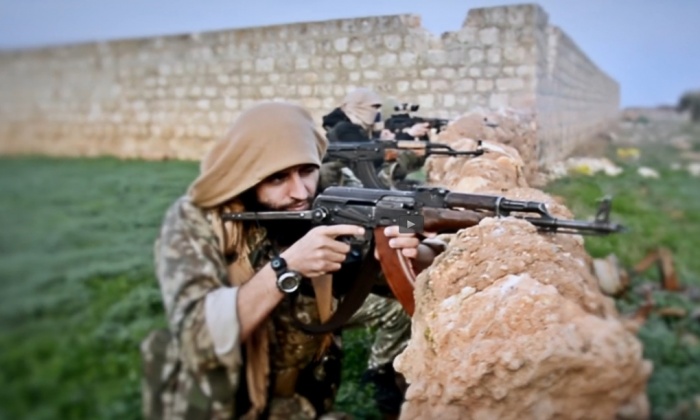Isis targets vulnerable Bosnia for recruitment and attack

High youth unemployment, ethnic tensions and political paralysis help jihadis lure young people to Syria and open up new terror front in heart of Europe.
Islamic State has expanded its efforts to recruit fighters in Bosnia and incite terrorist attacks there, taking advantage of the world’s highest youth unemployment rate and chronic political paralysis.
The initiative, though small in scale, is causing alarm in western capitals, where diplomats fear that the mix of economic malaise and ethnic tensions represents fertile terrain for extremism, and that Europe could come to regret the failure to confront Bosnia’s profound structural problems in the two decades since the war.
Isis produced a new recruitment video this month, targeting the Balkans region and Bosnia and Herzegovina in particular. The 20-minute film, entitled Honour is in Jihad, features several Bosnian Isis fighters exhorting their fellow countrymen to join the battle in Syria or carry out opportunistic attacks on perceived enemies of Islam at home.
“If you can, put explosives under the cars, in their houses, all over them. If you can, take poison and put it in their drink or food. Make them die, make them die of poisoning, kill them wherever you are. In Bosnia, in Serbia, in Sandzak [a region in south-west Serbia]. You can do it,” one of the Bosnians, identified by a pseudonym, Salahuddin al-Bosni, implores the audience in Bosnian.Returning foreign fighters pose a direct threat not only to the security of Bosnia and Herzegovina, but also the region.
A newly published report on jihadism found: “Returning foreign fighters from Syria and Iraq – battle-hardened, skilled in handling arms and explosives, and ideologically radicalised – pose a direct threat not only to the security of Bosnia and Herzegovina, but also of the region and beyond.”The report, The Lure of the Syrian War: The Foreign Fighters’ Bosnian Contingent, found that in 2013 and 2014, 156 Bosnian men and 36 women travelled to Syria, taking with them 25 children. Out of that number, 48 men and three women had returned by January of this year.
The authors, Sarajevo University associate political science professor Vlado Azinovic and Islamic theologian and columnist Muhamed Jusic, found that Bosnia was ill-equipped to deal with the potential threat. It is a weak state, split by a 1995 peace agreement into two entities, a federation of Muslims (known as Bosniaks) and Croats, and a Serb republic. Furthermore the federation is divided into 10 cantons. Twenty-two police agencies operate in the country with overlapping jurisdictions and roles.
“Generally, there is a lack of coordination between local law-enforcement agencies on [foreign fighter-] related issues,the report says, noting there is no single database on foreign fighters,and the existing data is “mostly scattered, often incomplete or disorganised.
“This results in significant gaps in understanding and monitoring of the phenomenon,” it notes, adding that government “lacks a discernible strategy to confront the looming problem.
“We are not doing anything. We are just observing, Azinovic said.
Kristina Jozic, a spokeswoman for the Bosnian state investigation and protection agency (Sipa), responsible for internal security, said it would analyse the Isis video with a view to identifying Bosnians involved in criminal offences.
“The return of individuals participating in the armed conflict in Syria, fighting with Isis, is undoubtedly a security challenge and a threat, the extent of which is hard to determine at this time,” Jozic said. “Sipa constantly checks allegations of terrorist activities, whether it be on trips to foreign battlefields, financing, recruitment or other terror-related activities ... and will take the necessary action.”
|